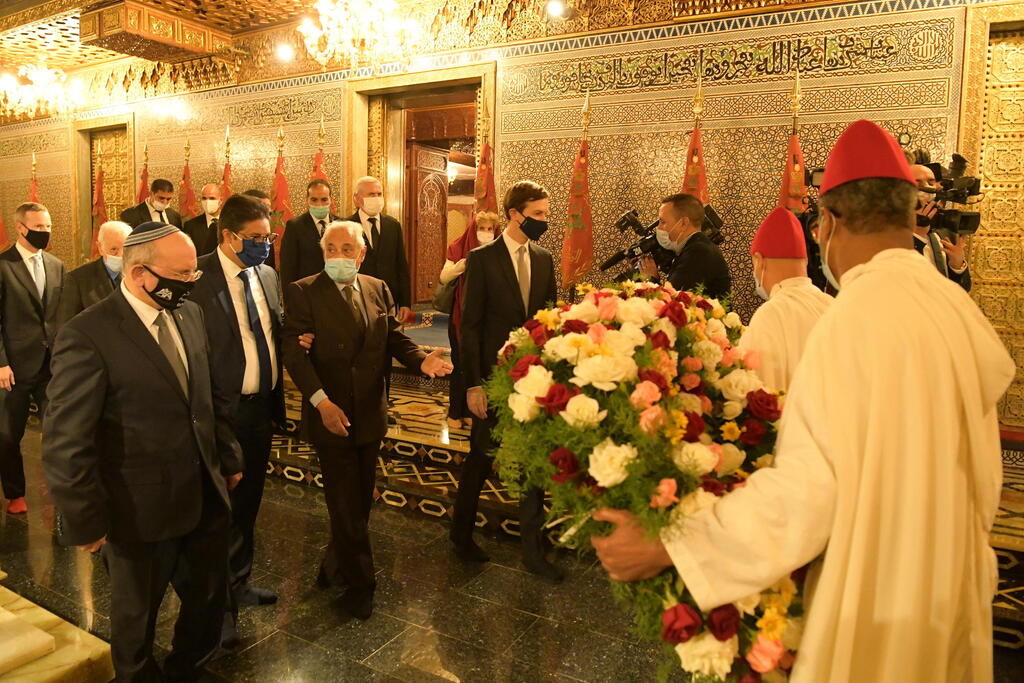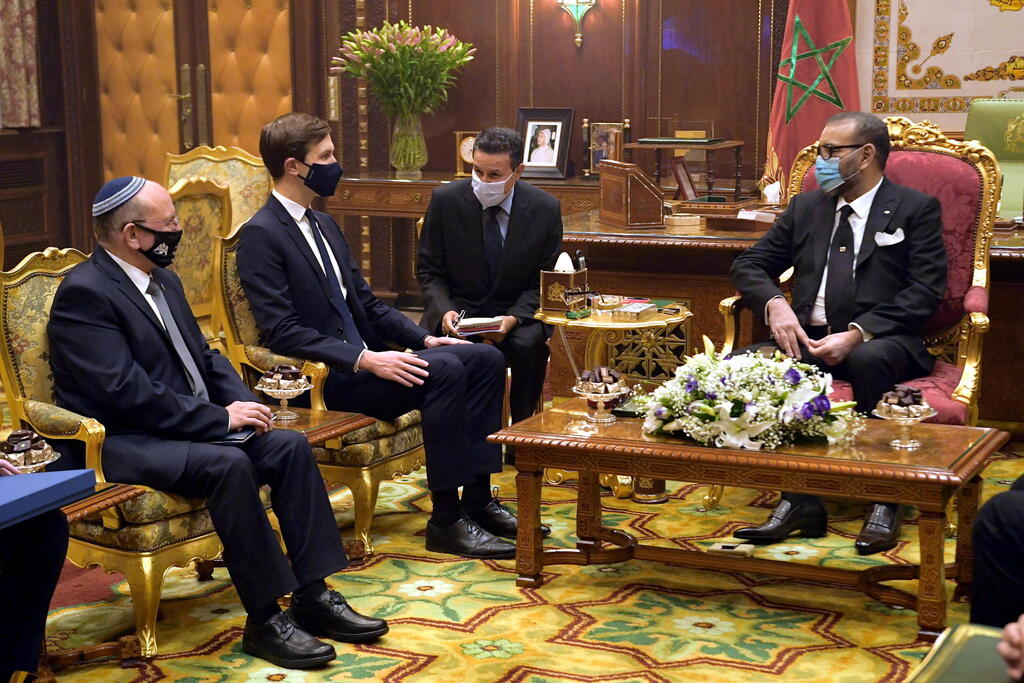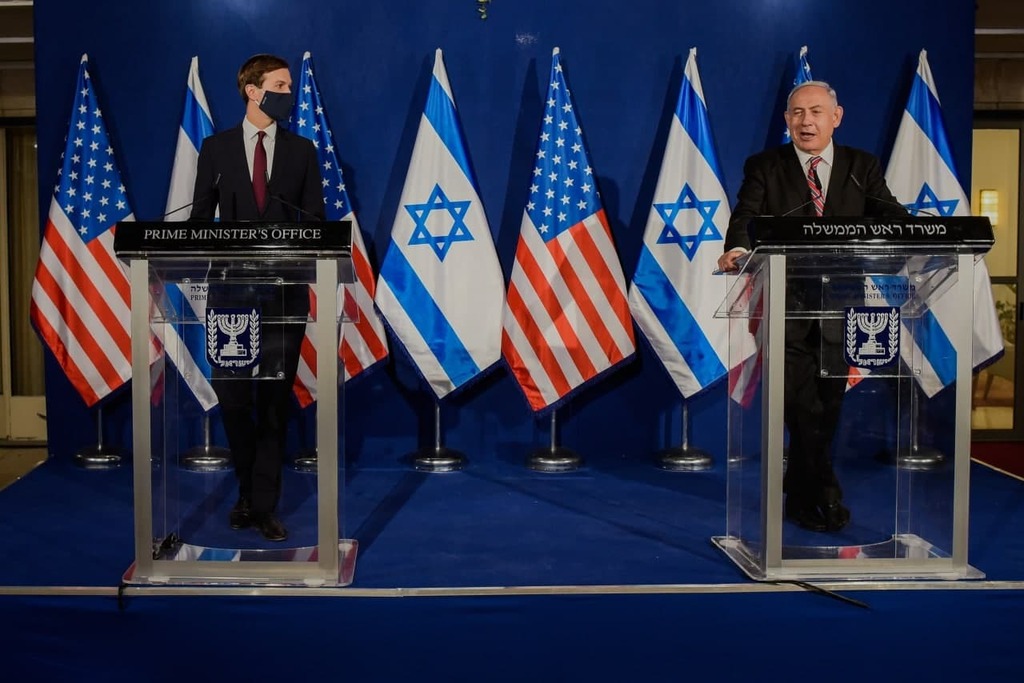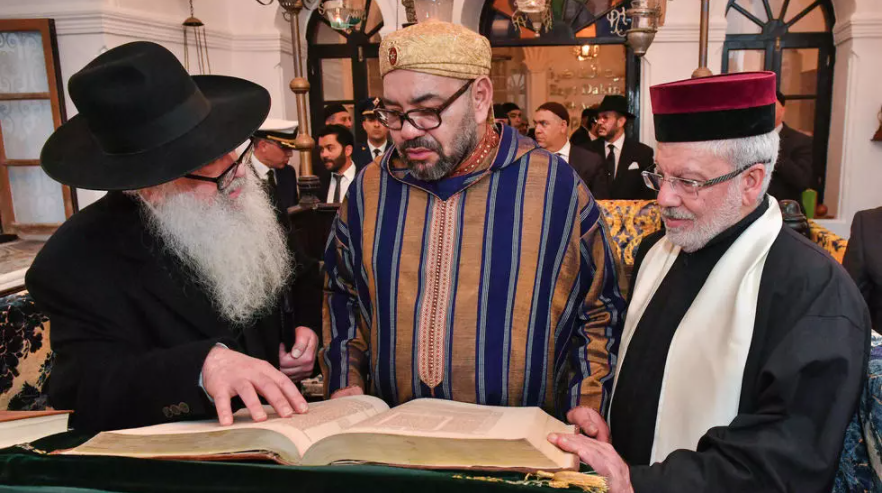Getting your Trinity Audio player ready...
Israeli envoys arrived in Morocco on Tuesday to meet its king and hammer out an upgrade of ties that was forged by the White House in a parting foreign policy push by U.S. President Donald Trump.
Led by National Security Adviser Meir Ben-Shabbat, the Israeli delegation was accompanied by Trump's son-in-law and senior White House adviser Jared Kushner.
4 View gallery


The joint Israeli-U.S. delegation visiting the mausoleum of the late Moroccan kings Mohammed V and Hassan II
(Photo: GPO)
They took El Al Israel Airlines in the first direct flight by a commercial plane from Tel Aviv to Rabat. Both countries anticipate a surge in tourism aboard such connections, mainly among the hundreds of thousands of Israelis of Moroccan descent.
During the visit, Ben-Shabbat and Kushner met with Morocco's King Mohammed VI and other Moroccan officials. Both sides signed a series of accords on linking up aviation and financial systems, on visas and water management.
Speaking to reporters, Kushner described the meetings as "enormously productive."
"Morocco and Israel are making huge strides on their commitments to resume full diplomatic relations, promote economic cooperation and to reopen their liaison offices very quickly," he said.
4 View gallery


Ben Shabbat and Kushner meeting with Morocco's King Morocco's King Mohammed VI
(Photo: GPO)
Kushner also defended the U.S. recognition of Moroccan sovereignty over the Western Sahara, saying it was "rejecting the failed status quo which benefits no one." He called on both sides to work with the UN in implementing a proposal to give the people of the territory broad autonomy.
"Genuine autonomy is the only feasible option, but it will take work," Kushner said.
The delegations were expected to restore low-level relations between Israel and Morocco that existed in the 1990s and sign several cooperation agreements, including the establishment of direct flights, said Foreign Ministry spokesman Lior Haiat.
"The goal is to move the relationship from a low level to full diplomatic relations," he said. He said there was no firm timeline for this process.
Adam Boehler, chief executive of the U.S. international development and finance corporation, said he expected the visit to yield huge trade benefits by bringing an existing relationship out into the open.
4 View gallery


Senior White House adviser Jared Kushner meeting with Prime Minister Benjamin Netanyahu on Monday ahead of the trip to Morocco
(Photo: Shalev Shalom)
"We've been doing a lot of legwork looking at investment in Morocco," he said. "They're a gateway to Africa, they've been a great ally to the United States, they have a great investment climate. So I think you're going to see obviously a multi billion dollar memorandum coming out of this but also some individual investments announced.
Morocco followed the United Arab Emirates, Bahrain and Sudan in moving toward normal relations with Israel. Palestinians have censured the U.S.-brokered deals, seeing a betrayal of a long-standing demand that Israel first meets their statehood demand.
As the Trump administration has sought to isolate Iran, the deals have been sweetened with promises of business opportunities or economic aid. Israel's new partners have also enjoyed bilateral benefits from Washington - in Rabat's case, U.S. recognition of its sovereignty over the Western Sahara region.
"This type of agreement (with Israel) will help have a better interaction between communities and people," Moroccan Tourism Minister Nadia Fettah Alaoui told I24 television.
4 View gallery


Morocco's King Mohammed VI is seen at Essaouira's 'House of Memory' in January 2020
(Photo: AFP)
The delegates' plane, painted with the Hebrew, Arabic and English words for "peace" and a Maghreb good-luck talisman, had a low-key reception at Rabat airport. Moroccan officials describe their deal with Israel as a restoration of mid-level ties that Rabat cooled in 2000 in solidarity with Palestinians.
Israel and Morocco now plan to reopen mutual "liaison offices". Israel hopes these will be upgraded to embassies.
Asked if the countries might establish full diplomatic relations before Trump steps down next month, Intelligence Minister Eli Cohen told Ynet: "My understanding is that the likelihood is not high."
First published: 16:59, 12.22.20

